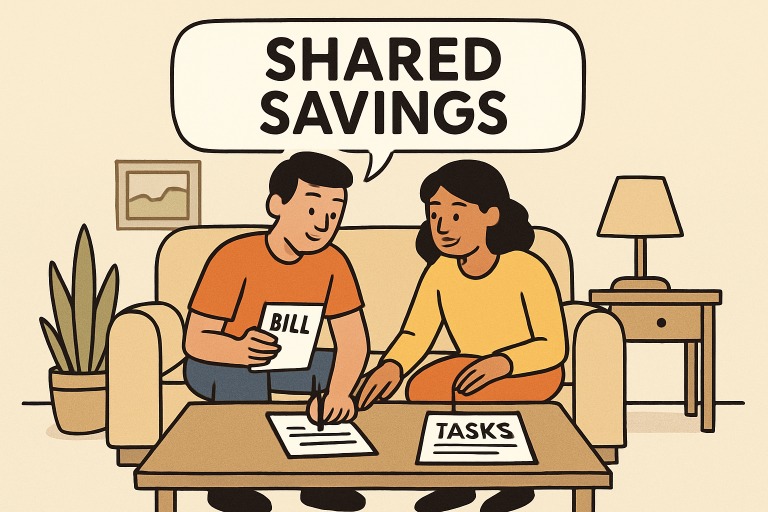Unlocking Financial Flexibility: A Guide to Home Refinance Loans
Mortgages are fundamentally a part of the home ownership experience for many individuals. However, the financial landscape is ever-evolving, and there comes a time when many homeowners ponder whether refinancing their mortgage might offer them better terms and additional financial flexibility. In this comprehensive guide, we’ll explore the benefits and considerations associated with home refinance loans, helping you to make an informed decision on if, how, and when to refinance your property.
What Exactly Is Refinancing?
Refinancing your mortgage involves replacing your current loan with a new one, usually with different, more favourable terms. The main objectives homeowners have when refinancing are to reduce their interest rate, lower their monthly repayments, or to tap into the equity they’ve built up in their property. When done correctly, it can be a strategic financial move.
Reducing Interest Rates
The most common incentive for refinancing is to secure a lower interest rate on your mortgage. Why is this so important? A lower rate can significantly reduce the amount of interest you pay over the life of your loan, potentially saving you thousands of pounds. Furthermore, it can lead to lower monthly repayments, freeing up cash for other expenses or investments.
Adjusting the Loan Term
Another reason to consider refinancing is to adjust the length of your mortgage. Some homeowners opt for a shorter loan term to pay off their mortgage faster, while others prefer extending the loan duration to reduce their monthly repayments. It’s essential to assess how the loan term impacts your overall financial plan before making a decision.
Accessing Equity
As homeowners pay down their mortgage and property values increase, they build equity in their home. Through refinancing, it’s possible to access this equity and use it for other high-priority financial goals such as funding renovations, consolidating debt, or investing in other assets.
The Refinancing Process
The process of refinancing your home can be broken down into several key steps. It begins with assessing your financial situation and establishing your goals for refinancing. Then, you’ll need to compare loan products and lenders, apply for the new loan, and go through the appraisal process. Once approved, the new loan will pay off your existing mortgage, and you’ll begin making repayments on the newly refinanced loan.
Costs Involved in Refinancing
Refinancing is not without its costs, which can include application fees, legal fees, appraisal costs, and possibly prepayment penalties from your current lender. These need to be weighed against the potential savings to ensure refinancing makes financial sense in the long run.
Credit Implications
Your credit score plays a significant role in the refinancing process. Not only will it affect the rates and terms you’re offered, but the act of refinancing itself can have an impact on your credit score. It’s pivotal to understand these implications and take steps to maintain a strong credit profile.
When to Refinance
Timing is a critical aspect of refinancing. It is generally advantageous when interest rates have dropped since you took out your original mortgage, or when your credit situation has improved. It’s also important to consider the remaining term of your current mortgage and any changes to your financial goals.
Choosing the Right Lender
Selecting the right lender for your refinance is crucial. Each lender offers unique loan products and varied terms and conditions. You must conduct thorough research, read reviews, and possibly consult with a financial advisor to find the best match for your circumstances.
The Role of a Mortgage Broker
A mortgage broker can be a valuable resource when refinancing. They offer advice, compare different loan products on your behalf, and assist with navigating the application process. Leveraging their expertise could lead to better negotiation outcomes and a smoother refinancing experience.
Risks of Refinancing
While refinancing can offer many benefits, there are risks involved. House values can fluctuate which may affect the success of the loan application, or you might find yourself locked into an unfavourable loan if not thoroughly researched. Understanding and mitigating these risks is key.
Is Refinancing Right for You?
Ultimately, whether refinancing is the right decision will depend on your individual circumstances, including your current financial situation, goals, the value of your home, and market conditions. It’s a decision that requires careful consideration and financial insight.
Final Thoughts
Refinancing can be a path to improved financial flexibility and achieving personal financial goals. However, it’s a complex decision with various factors to consider. Homeowners should take the time to understand their options, the associated costs, and the potential impact on their finances now and in the future.
In conclusion, homeowners seeking to explore refinancing options and unlock the potential within their property investment, can find additional information on home refinance loans through reliable financial institutions. By doing so, you can take a proactive step towards optimising your mortgage and enhancing your financial well-being.







